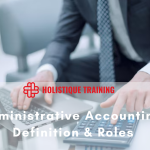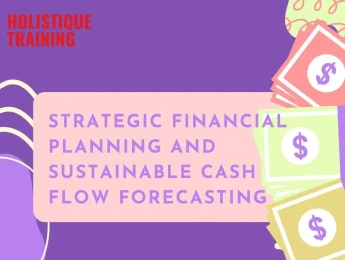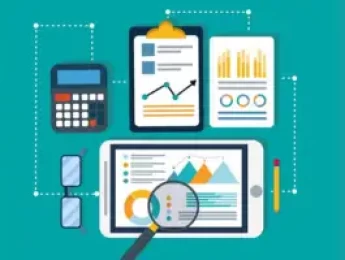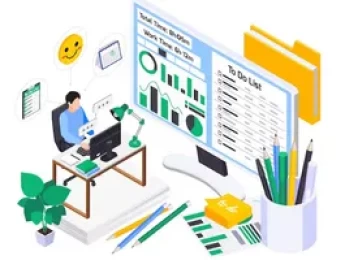Most business or project plans fail within the first few months. For this reason, it’s essential that you plan out the project framework, consider costs, benefits, and requirements for each stage alongside equipment and resources, and come to an accurate conclusion regarding whether your project is feasible and financially viable.
Conducting a feasibility study requires fully understanding the value of each project and benchmarking priorities against different organisations. This process will entail financial research, technical know-how, and the ability to forecast outcomes based on previous commercial models.
Financial planning for a new project allows you to maximise successes, identify potential risks, mitigate failures, and maintain project contingency. Assessing feasibility based on key metrics is a great way to amend potential procedures or scrap ideas that aren’t guaranteed to be successful before spending excessive money and resources on a failed project.
Upon completion of this course, participants will be able to:
- Identify the key concepts of feasibility planning and its benefits.
- Develop a stepped approach for your business area to assess feasibility.
- Understand how to benchmark your project against changes in competitor organisations to determine urgency.
- Create a feasibility report based on accurate data and forecasting models.
- Assess risks and challenges that may cause issues with your project roll-out.
- Gain buy-in from stakeholders and partners involved in your project planning.
- Conduct a systematic approach to feasibility planning to ensure financial stability and profit.
- Make business-benefitting decisions based on feasibility testing.
- Make continuous improvements to a process based on feasibility auditing.
- Report on successes and lessons learned to help with future business planning.
This course is designed for anyone involved in the project planning process or people who are responsible for making financial decisions for a company. It would be most beneficial for:
- Project Planners
- Change & Control Managers
- Operations Managers
- Financial Professionals
- Managing Directors
- Business Owners
- Resources Managers
- IT Professionals
- HR Personnel
This course uses a variety of adult learning styles and methods to aid full comprehension and understanding. Participants will be presented with real-world project ideas against a business model to determine feasibility and potential for success. They will be provided with key techniques and tools to determine financial feasibility and prioritise tasks within the project framework to gain the most benefit from the slightest change.
A role-playing activity will then be conducted to help participants understand how to roll out a potential change and gain buy-in from key stakeholders. Accurate facts, figures, and data will be displayed to support the case while still identifying potential challenges and providing insightful and comprehensive solutions.
Day 5 of each course is reserved for a Q&A session, which may occur off-site. For 10-day courses, this also applies to day 10
Section 1: What is a Feasibility Study?
- Why are feasibility studies important?
- Definitions and concepts of feasibility.
- Technological planning and feasibility monitoring.
- Benchmarking against competitors.
- Commercial feasibility.
- Resource planning and job role distribution.
- Needs vs. wants.
Section 2: How to Discover Financial Feasibility
- The 80/20 method of project planning.
- Cost-benefit analysis.
- Creating a feasible return on investment.
- Cost estimation and discounting methods.
- Your capital spending plan against your cash flow forecast.
- Investment generation.
- Altman’s Z-score.
Section 3: Risk Assessments & Overcoming Challenges
- Your project requirement and cost-effective methods of achievement.
- Plan B and business continuity assessment.
- Identifying risks and mitigation methods.
- Qualitative and quantitative data for assessment.
- Risk response and lead time for change.
Section 4: Stakeholder Engagement & Negotiation
- Negotiation and funding security.
- Developing a feasible presentation.
- Utilising your statistics to provide an accurate forecast.
- Engaging communication styles.
- Introducing a new learning cycle.
Section 5: Your Business Plan Presentation
- Your feasibility report to display positives.
- Accepting negatives and suggesting changes.
- Preparing a business plan with high impact.
- Critical path analysis.
- Pitching and selling your ideas.
- Benefits vs. functions.
Section 6: Change Framework & Success Metrics
- Budget planning and reducing costs.
- What’s essential and what’s ‘nice to have?’
- Using effective data sets to gain insight and intelligence.
- Dupont analysis.
- EVA, RONA, EBITDA.
- Assumptions and deriving signals.
Section 7: Lessons Learned & Business Continuity
- Auditing and revisiting project success.
- Understanding and accepting failures.
- Stakeholder optimisation.
- Staying ahead of the curve.
- Lessons learned.
Upon successful completion of this training course, delegates will be awarded a Holistique Training Certificate of Completion. For those who attend and complete the online training course, a Holistique Training e-Certificate will be provided.
Holistique Training Certificates are accredited by the British Assessment Council (BAC) and The CPD Certification Service (CPD), and are certified under ISO 9001, ISO 21001, and ISO 29993 standards.
CPD credits for this course are granted by our Certificates and will be reflected on the Holistique Training Certificate of Completion. In accordance with the standards of The CPD Certification Service, one CPD credit is awarded per hour of course attendance. A maximum of 50 CPD credits can be claimed for any single course we currently offer.
- Course Code MG2-119
- Course Format Classroom, Online,
- Duration 5 days














